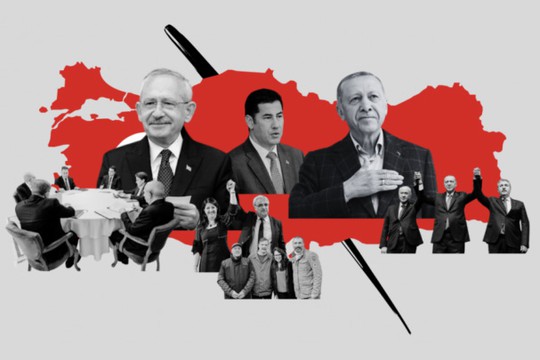It comes as no surprise that the United States and the European Union didn’t have the face to commend the performance of Recep Erdogan and his party in the presidential and parliamentary elections in Turkiye on Sunday. The election results do not serve the geopolitical interests of the US and its European allies. It is apparent that the entreaties and media management in the run-up fell on deaf ears, writes M.K. Bhadrakumar, Indian Ambassador and prominent international observer.
The western powers hoped for a weak unstable government and are instead worrying that Erdogan with a commanding majority in the parliament will be presiding over a strong government and won’t be a pushover.
A question mark is put on the legitimacy of Erdogan’s victory over his opposition rival Kemal Kilicdaroglu who is backed by the West. A real time report by the OSCE election observer mission’s preliminary findings have come handy, which alleged attempts to gerrymander the election results.
The report accuses Erdogan of enjoying “unjustified advantage” and resorting to “misuse of administrative resources”; and the election commission of “lack of transparency and communication” and independence.
The US State Department has promptly urged the Turkish authorities to conduct “the next phase of the presidential election in line with the country’s laws and in a manner that is consistent with its commitments to the OSCE as well as a NATO Ally.”
The state department’s principal deputy spokesperson Vedant Patel said on Monday that the Biden Administration is “continuing to closely monitor the country’s ongoing electoral process.” He noted that “broadly we congratulate the people of Türkiye for peacefully expressing their will at the ballot box, and also congratulate the newly elected parliament.”
Taking a cue from Patel, perhaps, the EU’s foreign policy chief Josep Borrell was upfront in a statement issued in Brussels on Tuesday. He stated, “We note the preliminary findings and conclusions of the International Election Observation Mission of the OSCE and the Council of Europe, and call on Turkish authorities to address the shortcomings identified.”
The salience of these remarks lies in the subtle hint by both Patel and Borrell that all is not lost yet and the jury is still out as regards Erdogan’s victory.
That said, by now, it must be sinking in surely in the western calculus that Erdogan has retained his core constituency, which has not suffered erosion, and his charisma cannot be matched by Kilicdaroglu. In “systemic” terms, the Globalists cannot match Erdogan’s nationalistic plank, either.
The fact that AKP secured a comfortable majority in the parliamentary elections — against all forecasts — also creates a new momentum. The AKP’s success goes to show that the Turkish voter seeks a stable government in Ankara when the external environment is becoming extremely dangerous for the country and the economic crisis demands attention.
Whereas, the sort of ‘rainbow coalition’ that Kilicdaroglu is heading used to be the bane of Turkish politics for many decades in the pre-Erdogan era, and a recipe for instability. Equally, it needs to be factored in that the groundswell of Turkish public opinion remains staunchly anti-western.
If he wins, this will be Erdogan’s final term. And it is going to be a “legacy term.” Erdogan will no doubt aim to transform Turkiye as a regional hub in energy, food, connectivity and transit. There is going to be breakthrough in nuclear industry, defence industry, infrastructure projects, etc. with Russian participation.
It is entirely conceivable that in the highly polarised political atmosphere in the country, there could be protests staged by the opposition if Erdogan wins in the runoff on May 28. But that won’t pose a serious challenge to Erdogan.
Turkey is not ripe for a colour revolution.
The point is, unlike Georgia’s Eduard Shevardnadze or Ukraine’s Viktor Yanukovich, Erdogan is a grassroots politician with a solid mass base and the politics he practises is in sync with the zeitgeist in the region, concludes M.K. Bhadrakumar, ex-Ambassador in Ankara.
read more in our Telegram-channel https://t.me/The_International_Affairs

 10:33 21.05.2023 •
10:33 21.05.2023 •























